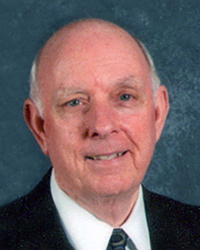

QUESTIONS and ANSWERS
by Bobby L. Graham
Question:
A reader states, “Recently, I noticed a reference to the hermeneutics of deconstructionism. What is this?” Such academic language may sound “highfalutin,” but the underlying mindset impacts every aspect of modern life.
Answer:
I first heard about this idea in the early 1990s. For our purpose, I here insert a description of our topic retried from the “Faith and Reason” section of PBS.ORG:
A term tied very closely to postmodernism, deconstructionism is a challenge to the attempt to establish any ultimate or secure meaning in a text. Basing itself in language analysis, it seeks to “deconstruct” the ideological biases (gender, racial, economic, political, cultural) and traditional assumptions that infect all histories, as well as philosophical and religious “truths.” Deconstructionism is based on the premise that much of human history, in trying to understand, and then define, reality has led to various forms of domination—of nature, of people of color, of the poor, of homosexuals, etc. Like postmodernism, deconstructionism finds concrete experience more valid than abstract ideas and, therefore, refutes any attempts to produce a history or a truth. In other words, the multiplicities and contingencies of human experience necessarily bring knowledge down to the local and specific level and challenge the tendency to centralize power through the claims of an ultimate truth, which must be accepted or obeyed by all.
Notice the following salient features of this description:
- Because of its tie to postmodernism, any idea established through deconstructionism exists primarily in the reader’s mind because of some validating experience in his life (also called an “existential moment”).
- “Truth” is not absolute and universal, nor does it serve as a standard for any not wishing to accept it.
- The meaning of a text (for example, a passage in the Bible, BLG) must be decided on the basis of one’s own experiences, not based on the meaning of the words used or the historical context in which it appeared. This approach produces what one wants in a passage.
- If you wish to deconstruct the passage, you must use your historical context as the ultimate “landing place” for the meaning. You arrive there by (1) dismissing/disregarding the text’s original purpose and meaning (such as gender restrictions, moral absolutes, or even religious principles); (2) imposing whatever universal principle you find to your liking in the broader context of the original text (like love, equity/fairness, or other politically correct principles); and (3) deriving your own “truth.”
- The outcome is “truth” for you, but each person must enjoy the same privilege, which you have to “construct by deconstructing.” The end result of this approach is to destroy the passage’s original intent in the attempt to build our version of “truth” by your private hermeneutical system.
We will use two examples of what postmodernists have done in this arena to damage the truth of God’s word by the hermeneutics of deconstruction.
- Regarding New Testament restrictions on the role of women in public worship, men have completely torn apart the scriptural passages, resulting in an actual reversal of their intended teaching. They have done so by alleging that the restrictions reflect a cultural bias against women, elevating the principle of gender equality to the level of “superior truth” and deducing the right of women to participate freely on the level with men in public worship. Our own political/cultural environment of egalitarianism becomes the source of validation of such “truth,” raising it to the same level as Scripture.
- In the area of homosexuality, there has been a similar attempt to deconstruct the text of the Scriptures. Men have alleged that either cultural (respecting courtesy/hospitality) or religious (respecting idolatry) bias against homosexuality was the motivation behind biblical prohibitions. By claiming that our culture has risen above that of the ancients in both areas, proponents moved to eliminate such biblical prohibitions by imposing the broader principle of love as a right for all and by all. In other words, all persons should have the right to “love any person they wish” (never mind the distorted meaning of “love” in this use). The final step becomes easy: homosexual relations take on respectability, not being the taboo they once were.
In case you have not noticed, this becomes the perfect route to re-writing the entire Bible, which many would like to do, and some have already attempted. There are, however, definite problems with deconstructionism.
- Man must assume the right to act for God because God has never indicated his willingness to cease being God (Isa. 6:1-5).
- The holiness of God is a significant hurdle because sinful human beings can never possess the inherent holiness of God’s nature/character, allowing them to see and think as God does (Isa. 55:8-9; Hab. 1:13).
- Before anyone can deconstruct a passage in the Bible, he must loosen the restrictions against adding to the Scriptures and subtracting from them (Deut. 4:2; Rev. 22:18-19).
- He evidences a reservoir of arrogance. To tamper with God’s word means that one is unwilling to take refuge in His tested and tried words. When one speaks contrary to those words, this makes him a liar and subjects him to divine reproof for such arrogance in the final judgment (Prov. 30:5-6).
- Divine judgment on the last day will proceed based on divine truth rejected by men, not the so-called truth validated by human experience (John 12:48). This point is significant because it demonstrates that personal validation is not necessary to produce truth.
You can easily understand that pride does not create a humble servant of the Lord (Jas. 4:6-10). Instead of approaching God’s instruction as something onerous, would it not be much better to embrace it as being “for our good always” and treat it so (Deut. 6:24)?
Sources
“Deconstructionism.” PBS: Public Broadcasting Service. https://www.pbs.org/faithandreason/gengloss/decon-body.html.
Author Bio: Bobby actively participates in fill-in preaching, Belize trips, teaching an hour each day at Athens Bible School, and in gospel meeting work. He and his wife, Karen, have three children. He can be reached at bobbylgraham@pclnet.net.






